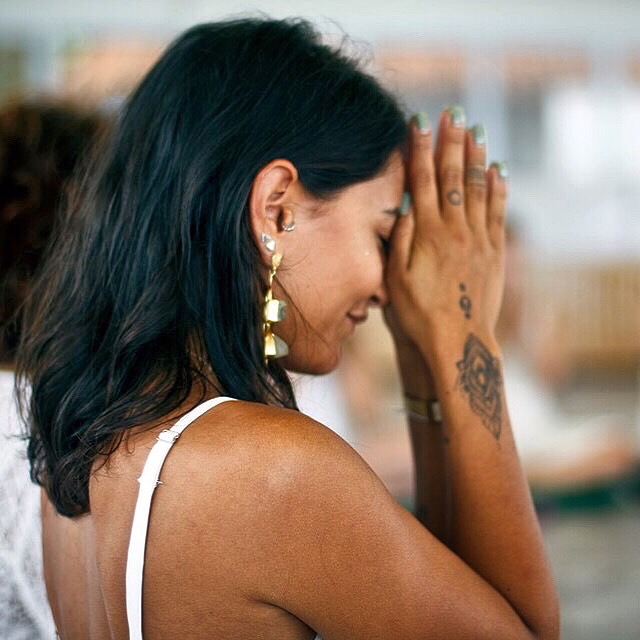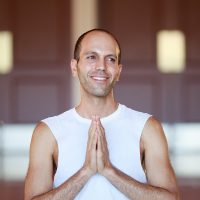So, I won’t be the first to suggest that some good might come of the lockdown and social distancing enforced upon many of us by government action over the spread of Covid-19. Social media is not only full of political rants and tirades of fear, but also of heartfelt encouragements, expressions of kindness and solidarity, and even beautiful poetry about us members of the great human family who are stepping up to take care of each other in difficult times, about the benefits to the environment and ecosystem of the planet from the forced cessation of destructive human production and transportation activities, and even about the psychological and spiritual benefits of just withdrawing from the world a while and spending time with ourselves. Yet, when it comes down to it, how do we handle the many hours and days (and weeks or even months) alone, or – possibly even more challenging – in close quarters with our family and loved ones? Could there be ways to spend these times that are better than filling them with social media and entertainment? And what kind of mindset is necessary in order to benefit, rather than go crazy, from all this time with ourselves? Enter: the yogi’s guide to surviving lockdown.
First of all, let me explain what I mean by “yogi”. While most of us today associate yoga with physical exercise – and indeed, I practice yoga asana and think it is a great complement to spiritual practice – body postures and movements are not our main concern here. As vipassana teacher S. N. Goenka put it, “a yogi is one who has made contact with ultimate reality”. There are plenty of exercises, physical and mental, to help us begin to connect with this “ultimate reality” of the yogi, but first it is useful to understand what it is, and how it can be particularly helpful in helping us cope with – and even profit from – prolonged isolation and forced cessation of our normal activity.
Imagine that you are having a very stressful experience, full of anxiety and violence. You struggle heroically against both the unfavorable nature of the situation and the emotional turmoil and fear that floods your own mind. Things don’t go your way, everything and everyone seems to be conspiring against you – and then, all of a sudden, you wake up. When the initial confusion dissipates, you realize with great relief that it was all a dream. But, though it may seem obvious, what exactly is it that is so relieving about discovering that your recent difficult experiences all took place in the dream state?
Is the relief a function of realizing that the dream experiences were not real? Well, what do we actually mean by “not real”? Is a dream not a real experience? To the brain, there is no difference – and, anyway, what would an “unreal experience” even be? Waking and dreaming experiences are both experiences, distinguishable from each other only by the labels that we give them. You would only need to be plagued with recurring nightmares for a few nights to recognize the real suffering you experience through the damage to your sleep quality and the negative emotional impressions of the dreamed experiences, spilling over into waking life.
Perhaps we could say that the relief is more due to the fact that the experience ends upon waking; but, again, the psychological effects of a dream can transcend the boundaries between sleep and waking. On the other hand, we usually do have an easier time letting go of a painful memory from a dreamed experience than one from waking life. Why should that be so?
The real reason that we experience relief upon waking up from a difficult dream is the same as the reason that we usually have an easier time detaching from the memory of a dream; it is the realization that, while our experience of the dream was a real experience like any other, all of the meaning of the dreamed events were assigned to them by our own minds. When we realize that all of the images and symbols of a dream did not actually mean what we thought they did (that is, that we were in some sort of danger or would suffer some grave consequences of the events that unfolded in the dream), we become relieved and are better able to surrender those experiences to the past and move on with our lives. And the fundamental insight of the yogi is that waking life is precisely like a dream in this one important manner – that upon “waking up” (itself a metaphoric synonym for spiritual enlightenment or realization), we can permanently let go of all suffering through the irreversible understanding that all of the meanings we thought inherent to our lives were actually figments of our own minds.
This is Yoga in the ultimate sense, in the sense that Goenka referred to as making contact with “ultimate reality”. Ultimate reality is not some parallel universe, extra dimension or spiritual plane – at least not in a literal sense. It is the same reality proposed by quantum physics: all that really ever “happens” is the arising and passing of subatomic particles. String theory, one of our most promising and elegant quantum theories, suggests that all that ever really “happens” is the fluctuation of strings that both arise from and comprise spacetime itself, with their distinct vibration frequencies determining the kind of particles that manifest in apparent reality. From this micro perspective – as well as from the macro perspective of the orbits of solar systems, galaxies, clusters and superclusters – it is easier to see that all the meaning that we give to the events of our lives and our human experience are arbitrary projections of mind. My marriage didn’t fall apart – spacetime fluctuated as strings vibrating in particular frequency combinations. My loved one didn’t pass away – spacetime fluctuated as strings vibrating in particular frequency combinations. This may sound cold or heartless, and also like a remote philosophy that is of no practical use to us in daily life. But it is simply an observation of reality as it is; and far from precluding the possibility of love and compassion, it gives us the best possible reasons to cultivate love and compassion – which is also precisely the best way to apply these realizations in our daily lives.
Upon waking from the dreamlike stream of projection and interpretations that we call “life” (and that the buddha called “samsara”, the endless cycle of illusory experience that marks the unawakened mind), the most meaningful purpose of all is to help all those around us to awaken as well and become free of the suffering created by their own minds. This is the deepest meaning of love and compassion, which has nothing to do with our usual, conditional and possessive ideas about relationships. But even if we can begin to wrap our heads around the idea of this great love and the irreversible bliss of enlightenment, the question remains – how do we even begin the journey to get there? The answer to this question is also the essence of this heart advice for surviving (and even benefiting greatly from) difficult times, such as many of us are experiencing today under lockdown. And it begins, perhaps counterintuitively, by turning directly towards and diving into our own suffering.
Just as a recurring nightmare of being chased by a monster may continue to plague our minds until we develop the courage to stop running from the monster and turn to face our fears, liberation from samsara requires the courage to completely face up to and be with ourselves, naked and exposed without any of our distractions, entertainments and coping strategies. The journey to unconditional freedom begins with a headlong dive into the mud of our suffering.
In times of isolation, whether we choose it as when we go on silent meditation retreat, or when it is forced on us by viral outbreak and government policy, can we realize that our boredom and restlessness are not the problem, but the greatest opportunity? Can we see that these discomforts are the gateway to the greatest freedom? It takes real guts, in fact it might be the greatest courage of all to face ourselves, our minds and emotions, without the shield of endless activities and distractions; but if we can be steadfast and unflinching in remaining with our uncomfortable feelings, we will gradually but reliably be rewarded with increasing freedom from suffering. To put it in practical terms: we can take this opportunity to make friends with ourselves and our minds by simply being with our experience without trying to change it.
As frequently as you can, and for as long at a time as you can, put away all forms of distraction and entertainment and just let yourself become bored or restless, or whatever kind of experience arises. Feel exactly what it feels like to be you in this moment, to be in your body and experience your mind and emotions, without reacting in any way whatsoever. That’s all there is to it – no fancy postures or breathing techniques (or even visualizations or chants) necessary. Just feel the real and actual sensations that arise and pass in the body, and the images and impressions that arise and pass in the mind. If you are persistent and steadfast, it will not be long before you are rewarded with the insight that all experiences are like a dream: impermanent, insubstantial and ultimately meaningless, carrying only the meanings that we assign them in our own minds. The insight that we don’t have to suffer in reaction to any experience, that we can just act when action is required and surrender when it is not, is not the distant province of some illustrious buddha – it is right around the corner, available and applicable in the lives of any of us who are willing to simply observe our experience without distraction or reaction.
In addition to all the positive ways that we can spend our time – caring for our bodies, as well as for any loved ones that may be under lockdown with us – we can care for our minds in this generous and courageous way. Let yourself do less and observe more. Let yourself react to nothing and feel everything, whenever and for as long as possible. Then these challenging times may reveal themselves to be the greatest opportunity of our lives – the doorway to freedom from our self-imposed prisons of emotional reactivity and the suffering created by the projections of meaning unto open, empty reality by our own minds. That is what it truly means to practice yoga.


 Share on bsky
Share on bsky





Read 0 comments and reply